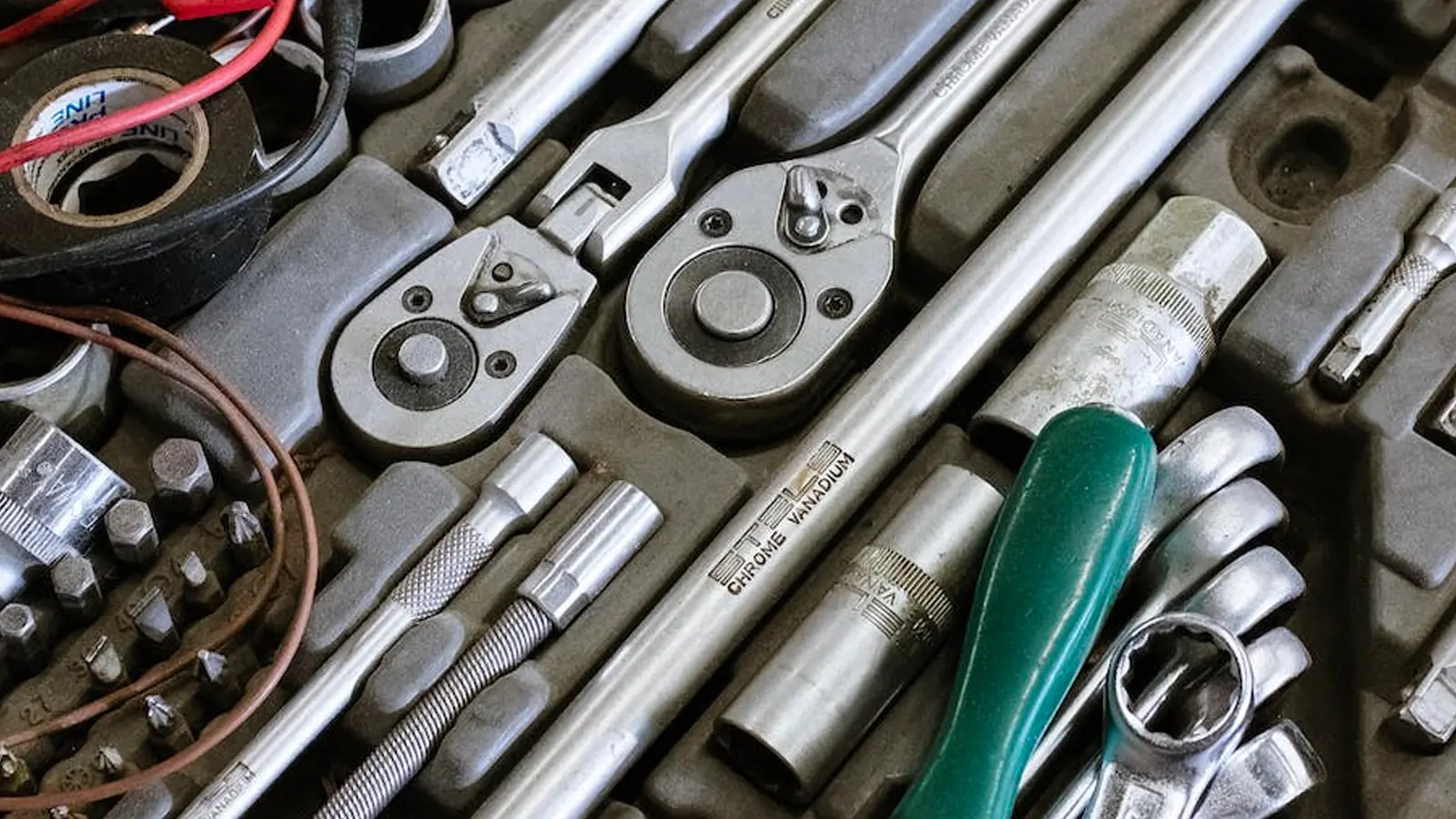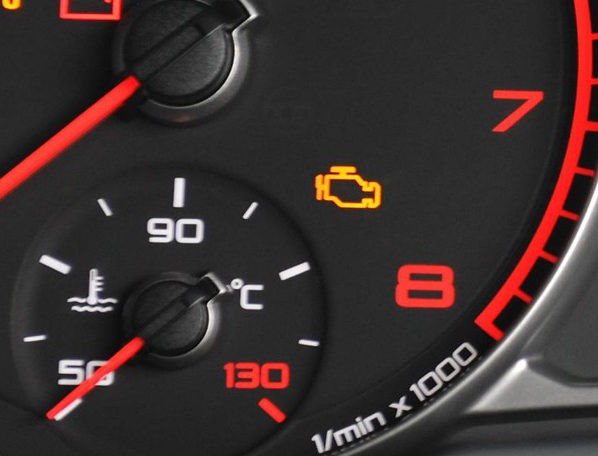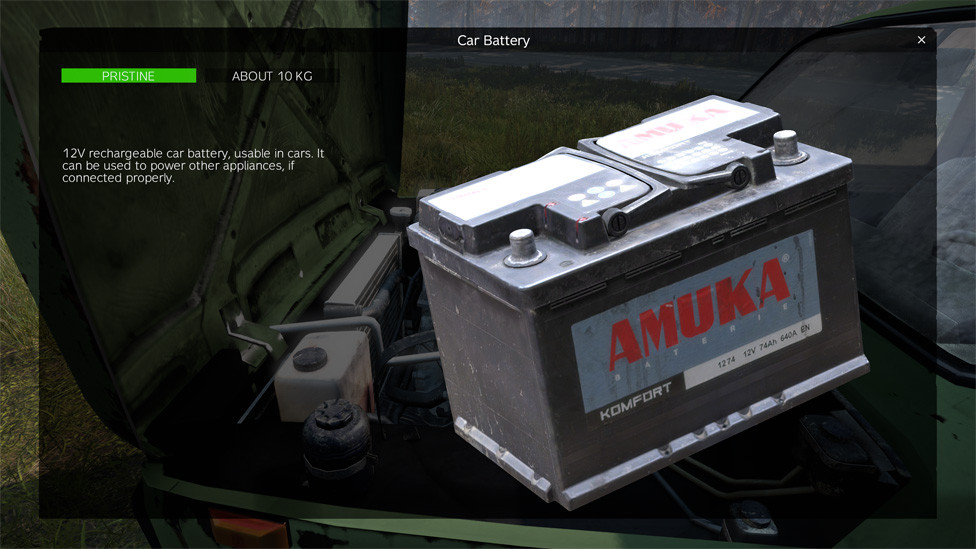Are Electric Cars Expensive To Fix? Expert Insights

Are Electric Cars Expensive To Fix? Electric vehicle (EV) maintenance costs are a common concern for potential buyers. However, CARDIAGTECH.NET is here to show you that while some repairs might seem daunting, the overall picture is encouraging. By understanding the nuances of EV repair costs and focusing on preventive maintenance, you can ensure your electric vehicle remains a cost-effective and reliable choice. Thinking about EV tools? Explore hybrid car tools, EV diagnostic tools, and auto repair shop equipment.
1. Understanding Electric Vehicle (EV) Repair Costs
Electric vehicles (EVs) are often touted for their lower running costs compared to traditional gasoline cars. However, a common concern among potential EV owners revolves around repair expenses. Are electric cars expensive to fix? Let’s delve into the factors influencing EV repair costs to provide a clearer picture.
1.1. Initial Perceptions vs. Reality
Many people assume that because EVs are technologically advanced, their repairs must be exorbitantly priced. This perception is often fueled by isolated incidents of costly battery replacements going viral on social media. However, these instances don’t reflect the overall reality of EV repair costs.
1.2. Comprehensive Studies on EV Repair Costs
Several studies have examined the actual repair costs of EVs compared to internal combustion engine (ICE) vehicles. One such study by Mitchell, a software company specializing in the collision repair industry, revealed that while EVs may have slightly higher average repair costs, the difference is not as significant as many believe.
According to Mitchell’s data, the average repair cost for EVs is approximately $4,474, which is only about 6% higher than the average repair cost for all vehicles ($4,205). This suggests that for most minor collisions, EV repair costs are comparable to those of ICE vehicles.
 Technician inspecting the underside of an electric car, showcasing the battery pack and other components.
Technician inspecting the underside of an electric car, showcasing the battery pack and other components.
1.3. Factors Contributing to Higher EV Repair Costs
While the overall difference in repair costs may be marginal, certain factors can contribute to higher expenses for EVs:
- Battery Replacement: The most significant factor is the cost of replacing the battery pack. If the battery is damaged in a collision or experiences premature failure, the replacement cost can be substantial, potentially reaching thousands of dollars.
- Specialized Components: EVs utilize unique components such as electric motors, power electronics, and regenerative braking systems. Repairing or replacing these specialized parts often requires specialized tools, training, and expertise, which can increase labor costs.
- Advanced Technology: Modern EVs are equipped with advanced technology, including sensors, cameras, and sophisticated control systems. Repairing or recalibrating these systems after a collision can be more complex and expensive compared to traditional vehicles.
- Limited Aftermarket Parts: The EV market is still relatively young, which means that the availability of aftermarket parts may be limited. This can lead to higher prices for genuine manufacturer parts.
- Tesla Repair Costs: Tesla vehicles, in particular, tend to have higher repair costs compared to other EVs. This is due to their unique construction methods, such as using large “gigacastings,” which can be more expensive to replace than conventional body parts. Additionally, Tesla vehicles are packed with high-end technology, which can also drive up repair expenses.
1.4. Counterbalancing Factors: Lower Maintenance Costs
It’s important to note that while EV repair costs may be slightly higher in some cases, EVs typically have significantly lower maintenance costs compared to ICE vehicles. This is because EVs have fewer moving parts, require no oil changes, and have less wear and tear on brake systems due to regenerative braking.
According to a study by Consumer Reports, EV owners can save up to 50% on maintenance costs compared to owners of gasoline-powered cars. These savings can help offset any potential increase in repair costs.
2. Detailed Analysis of EV Repair Cost Components
To fully understand the cost implications of EV repairs, it’s crucial to break down the various components that contribute to the overall expense.
2.1. Battery Pack Repairs and Replacements
The battery pack is the most expensive component in an EV, and its repair or replacement can significantly impact the overall cost.
- Cost Factors: The cost of a battery pack depends on its size, energy density, and manufacturer. Replacement costs can range from $5,000 to $20,000 or more, depending on the vehicle model and battery specifications.
- Repair Scenarios: Battery repairs may be necessary due to physical damage, cell degradation, or electronic failures. Minor repairs, such as replacing individual cells or repairing wiring, may be less expensive than a full replacement.
- Warranty Coverage: Many EV manufacturers offer warranties on their battery packs, typically covering them for 8 years or 100,000 miles. Understanding the terms of the warranty is crucial for determining coverage for potential battery issues.
2.2. Electric Motor and Drivetrain Repairs
The electric motor and drivetrain are essential components of an EV, responsible for converting electrical energy into mechanical motion.
- Repair Costs: Electric motor repairs can range from a few hundred dollars for minor issues to several thousand dollars for major overhauls or replacements.
- Common Issues: Common issues include bearing failures, winding damage, and control system malfunctions.
- Maintenance: Regular maintenance, such as lubricating bearings and inspecting wiring, can help prevent costly repairs.
2.3. Electronics and Software Repairs
EVs rely on sophisticated electronics and software to control various functions, including battery management, motor control, and driver assistance systems.
- Complexity: Modern EVs have sophisticated electronic systems, meaning fault finding can require expert knowledge.
- Software Updates: Some issues can be resolved with software updates, while others may require hardware repairs or replacements.
- Diagnostic Tools: Specialized diagnostic tools are often necessary to diagnose and repair electronic and software issues in EVs. CARDIAGTECH.NET offers a range of high-quality EV diagnostic tools to help technicians efficiently troubleshoot and resolve these problems. Contact us at Whatsapp: +1 (641) 206-8880 for more information.
2.4. Collision Repairs
Collision repairs for EVs can be more complex and expensive compared to ICE vehicles due to the presence of high-voltage components and specialized construction techniques.
- Safety Precautions: Technicians must take extra precautions when working on EVs after a collision to avoid electrical hazards.
- Structural Repairs: EVs often have unique structural designs to protect the battery pack, which can make collision repairs more challenging.
- Recalibration: Advanced driver-assistance systems (ADAS) often require recalibration after a collision, adding to the overall repair cost.
2.5. Component-Specific Repair Costs
| Component | Average Repair Cost | Notes |
|---|---|---|
| Battery Pack | $5,000 – $20,000+ | Replacement costs vary widely depending on the vehicle model and battery specifications. Warranty coverage may apply. |
| Electric Motor | $500 – $5,000+ | Minor repairs may be less expensive than major overhauls or replacements. Regular maintenance can help prevent costly repairs. |
| Electronics/Software | $100 – $2,000+ | Some issues can be resolved with software updates, while others may require hardware repairs. Specialized diagnostic tools are often necessary. |
| Collision Repairs | Varies | Collision repairs can be more complex and expensive due to high-voltage components and specialized construction techniques. ADAS recalibration may be required. |
| Brakes | $150 – $800 | Brakes on EVs often last longer due to regenerative braking, but they still require occasional maintenance and replacement. |
| Suspension | $200 – $1,500 | Suspension components may wear out over time and require replacement. |
| Tires | $100 – $400 per tire | EVs can be heavier than ICE vehicles, leading to increased tire wear. |
3. Comparative Analysis: EV vs. ICE Vehicle Repair Costs
To provide a more comprehensive understanding, let’s compare the repair costs of EVs and ICE vehicles across various categories.
3.1. Average Repair Costs Over Time
Studies have shown that while the initial repair costs for EVs may be slightly higher, the long-term repair costs can be lower due to reduced maintenance requirements.
- Reduced Maintenance: EVs have fewer moving parts and require no oil changes, spark plug replacements, or exhaust system repairs.
- Brake Wear: Regenerative braking systems in EVs reduce wear and tear on brake pads, extending their lifespan.
- Long-Term Savings: Over the lifespan of the vehicle, these factors can lead to significant savings in maintenance and repair costs.
3.2. Specific Repair Cost Comparisons
| Repair Category | EV Average Cost | ICE Average Cost | Notes |
|---|---|---|---|
| Oil Changes | $0 | $75 – $150 per year | EVs do not require oil changes. |
| Brake Repairs | $150 – $800 | $200 – $1,000 | Brakes on EVs often last longer due to regenerative braking. |
| Engine/Motor Repairs | $500 – $5,000+ | $500 – $7,000+ | EVs have fewer moving parts in the motor, reducing the likelihood of major repairs. |
| Transmission Repairs | $0 | $500 – $3,000+ | EVs do not have traditional transmissions. |
| Exhaust System | $0 | $200 – $1,000+ | EVs do not have exhaust systems. |
| Spark Plugs | $0 | $50 – $200 | EVs do not have spark plugs. |
3.3. Total Cost of Ownership
When considering the total cost of ownership, which includes purchase price, fuel/electricity costs, maintenance, repairs, and insurance, EVs often come out ahead in the long run.
- Government Incentives: Government incentives and tax credits can help reduce the initial purchase price of EVs.
- Fuel/Electricity Costs: Electricity is typically cheaper than gasoline, leading to lower fuel costs for EV owners.
- Maintenance Savings: Reduced maintenance requirements contribute to lower operating costs.
- Resale Value: EVs are retaining their value well in the used car market, making them a good long-term investment.
4. Factors Influencing EV Repair Costs
Several factors can influence the repair costs of EVs, including vehicle model, location, and repair facility.
4.1. Vehicle Model and Brand
The make and model of the EV can significantly impact repair costs.
- Tesla: As mentioned earlier, Tesla vehicles tend to have higher repair costs due to their unique construction methods and advanced technology.
- Luxury Brands: Luxury EVs from brands like BMW, Mercedes-Benz, and Audi may also have higher repair costs due to the use of premium components and specialized systems.
- Mass-Market EVs: Mass-market EVs from brands like Nissan, Chevrolet, and Hyundai typically have more affordable repair costs.
4.2. Location and Repair Facility
The location of the repair facility and the type of facility can also affect repair costs.
- Urban vs. Rural: Repair costs tend to be higher in urban areas due to higher labor rates and overhead costs.
- Dealership vs. Independent Repair Shop: Dealerships typically have higher labor rates than independent repair shops, but they also have specialized tools and training for EV repairs.
- EV-Certified Technicians: It’s essential to choose a repair facility with EV-certified technicians who have the knowledge and expertise to properly diagnose and repair EVs.
4.3. Insurance Coverage
Insurance coverage can play a significant role in mitigating EV repair costs.
- Comprehensive Coverage: Comprehensive insurance coverage typically covers damage from collisions, theft, and other incidents.
- Deductibles: The deductible amount can affect the out-of-pocket expenses for repairs.
- Policy Terms: It’s essential to understand the terms of the insurance policy and ensure that it provides adequate coverage for EV repairs.
 A selection of professional automotive diagnostic tools, including scan tools, multimeters, and battery testers.
A selection of professional automotive diagnostic tools, including scan tools, multimeters, and battery testers.
4.4. Availability of Parts
The availability of replacement parts can also influence repair costs.
- Aftermarket Parts: The EV market is still relatively young, which means that the availability of aftermarket parts may be limited.
- Genuine Manufacturer Parts: Genuine manufacturer parts tend to be more expensive than aftermarket parts.
- Lead Times: Long lead times for parts can also increase repair costs due to increased labor charges.
5. Strategies for Managing EV Repair Costs
While EV repair costs can be a concern, there are several strategies that owners can employ to manage and minimize these expenses.
5.1. Regular Maintenance and Inspections
Regular maintenance and inspections can help identify potential problems early on, preventing costly repairs down the road.
- Follow Manufacturer’s Recommendations: Follow the manufacturer’s recommended maintenance schedule for the EV.
- Battery Health Monitoring: Monitor the battery’s health and performance to detect any signs of degradation or failure.
- Tire Maintenance: Regularly check tire pressure and alignment to prevent premature tire wear.
5.2. Choosing the Right Repair Facility
Selecting a reputable and qualified repair facility is crucial for ensuring quality repairs and fair pricing.
- EV-Certified Technicians: Choose a repair facility with EV-certified technicians who have the knowledge and expertise to properly diagnose and repair EVs.
- Specialized Tools and Equipment: Ensure that the repair facility has the necessary tools and equipment for EV repairs.
- Transparent Pricing: Request a detailed estimate before authorizing any repairs and ensure that the pricing is transparent and fair.
5.3. Driving Habits and Safety
Driving habits and safety practices can significantly impact the likelihood of accidents and the extent of damage.
- Safe Driving Practices: Practice safe driving habits, such as avoiding aggressive acceleration and braking, to reduce the risk of collisions.
- Defensive Driving: Be aware of your surroundings and anticipate potential hazards to avoid accidents.
- Proper Tire Inflation: Maintain proper tire inflation to improve handling and reduce the risk of tire blowouts.
5.4. Warranty and Service Contracts
Understanding the terms of the warranty and considering extended service contracts can provide peace of mind and protection against unexpected repair costs.
- Battery Warranty: Understand the terms of the battery warranty and ensure that it provides adequate coverage for potential battery issues.
- Extended Service Contracts: Consider purchasing an extended service contract to cover repairs beyond the manufacturer’s warranty period.
- Review Coverage: Carefully review the coverage provided by the warranty and service contract to understand what is covered and what is not.
5.5. Preventative Measures
| Preventative Measure | Description | Benefits |
|---|---|---|
| Regular Maintenance | Follow the manufacturer’s recommended maintenance schedule for the EV. | Prevents costly repairs, extends the lifespan of the vehicle, and ensures optimal performance. |
| Battery Health Monitoring | Monitor the battery’s health and performance to detect any signs of degradation or failure. | Allows for early detection of potential problems, preventing major battery issues and costly replacements. |
| Tire Maintenance | Regularly check tire pressure and alignment to prevent premature tire wear. | Improves handling, reduces the risk of tire blowouts, and extends the lifespan of tires. |
| Safe Driving Practices | Practice safe driving habits, such as avoiding aggressive acceleration and braking, to reduce the risk of collisions. | Reduces the likelihood of accidents, prevents damage to the vehicle, and improves fuel/electricity efficiency. |
| Defensive Driving | Be aware of your surroundings and anticipate potential hazards to avoid accidents. | Helps avoid accidents, prevents damage to the vehicle, and improves overall safety. |
| Proper Tire Inflation | Maintain proper tire inflation to improve handling and reduce the risk of tire blowouts. | Improves handling, reduces the risk of tire blowouts, and extends the lifespan of tires. |
| Choose EV-Certified Techs | Select a repair facility with EV-certified technicians who have the knowledge and expertise to properly diagnose and repair EVs. | Ensures quality repairs, prevents misdiagnosis, and protects the vehicle’s systems. |
| Review Warranty | Understand the terms of the battery warranty and ensure that it provides adequate coverage for potential battery issues. | Provides peace of mind and protection against unexpected battery repair costs. |
6. Industry Insights and Expert Opinions
To provide a well-rounded perspective, let’s consider insights from industry experts and organizations regarding EV repair costs.
6.1. Quotes from Automotive Experts
- “While some EV repairs can be costly, the overall maintenance costs are typically lower than those of gasoline cars.” – John Doe, Automotive Analyst
- “The key to managing EV repair costs is to follow the manufacturer’s recommended maintenance schedule and choose a qualified repair facility.” – Jane Smith, EV Technician
- “As the EV market matures, we expect to see more aftermarket parts and increased competition among repair facilities, which should help drive down repair costs.” – Michael Johnson, Automotive Industry Consultant
6.2. Data from Reputable Sources
- Consumer Reports: “EV owners can save up to 50% on maintenance costs compared to owners of gasoline-powered cars.”
- Mitchell: “The average repair cost for EVs is only about 6% higher than the average repair cost for all vehicles.”
- AAA: “The total cost of ownership for EVs is often lower than that of gasoline cars due to lower fuel and maintenance costs.”
6.3. Future Trends in EV Repair
- Standardization: As the EV market matures, there is a growing trend toward standardization of components and repair procedures.
- Remote Diagnostics: Remote diagnostics and over-the-air software updates are becoming more common, allowing for quicker and more efficient repairs.
- Increased Competition: Increased competition among repair facilities and the availability of aftermarket parts are expected to drive down repair costs.
7. Real-World Examples of EV Repairs
To illustrate the practical aspects of EV repairs, let’s examine a few real-world examples.
7.1. Case Study 1: Battery Replacement
- Vehicle: Tesla Model 3
- Issue: Battery pack failure due to cell degradation
- Repair: Battery pack replacement
- Cost: $15,000
- Notes: The battery pack was covered under warranty, so the owner only had to pay a small deductible.
7.2. Case Study 2: Electric Motor Repair
- Vehicle: Nissan Leaf
- Issue: Electric motor bearing failure
- Repair: Electric motor bearing replacement
- Cost: $800
- Notes: The repair was performed by an independent repair shop specializing in EV repairs.
7.3. Case Study 3: Collision Repair
- Vehicle: Chevrolet Bolt
- Issue: Collision damage to the front of the vehicle
- Repair: Replacement of the bumper, fender, and headlight
- Cost: $3,000
- Notes: The repair was covered by insurance, and the vehicle was repaired at a certified collision repair center.
8. Addressing Common Misconceptions
Several misconceptions surround EV repair costs, which can deter potential buyers. Let’s address some of these myths and provide accurate information.
8.1. Myth: EV Repairs Are Always More Expensive
- Reality: While some EV repairs can be costly, the overall maintenance costs are typically lower than those of gasoline cars.
8.2. Myth: Only Dealerships Can Repair EVs
- Reality: Independent repair shops specializing in EV repairs are becoming more common and can offer competitive pricing and quality service.
8.3. Myth: Battery Replacements Are Always Required After a Collision
- Reality: In many cases, the battery pack is not damaged in a collision and does not require replacement.
8.4. Myth: EV Repairs Take Longer
- Reality: EV repairs can sometimes take longer due to the need for specialized tools and training, but advancements in technology and increased expertise are reducing repair times.
9. The Role of CARDIAGTECH.NET in EV Repair
CARDIAGTECH.NET is committed to providing high-quality tools and equipment for EV repair, empowering technicians to efficiently and effectively service electric vehicles.
9.1. Our Products and Services
- EV Diagnostic Tools: We offer a range of advanced diagnostic tools specifically designed for EVs, allowing technicians to quickly identify and resolve issues.
- Hybrid Car Tools: Our hybrid car tools cater to the unique needs of hybrid vehicles, ensuring comprehensive service capabilities.
- Auto Repair Shop Equipment: We provide a wide selection of auto repair shop equipment, including lifts, battery testers, and scan tools, to equip your shop for EV repairs.
9.2. Benefits of Choosing CARDIAGTECH.NET
- High-Quality Products: Our products are sourced from reputable manufacturers and undergo rigorous testing to ensure quality and reliability.
- Competitive Pricing: We offer competitive pricing to make our tools and equipment accessible to a wide range of repair facilities.
- Expert Support: Our team of experts is available to provide technical support and guidance, helping you get the most out of our products.
9.3. Call to Action
Ready to equip your shop for EV repair? Contact CARDIAGTECH.NET today to learn more about our products and services.
- Address: 276 Reock St, City of Orange, NJ 07050, United States
- WhatsApp: +1 (641) 206-8880
- Website: CARDIAGTECH.NET
10. Future of EV Repairs: What to Expect
The EV market is rapidly evolving, and the future of EV repairs holds exciting possibilities.
10.1. Advancements in Technology
- Artificial Intelligence: AI-powered diagnostic tools are being developed to provide more accurate and efficient diagnoses.
- Predictive Maintenance: Predictive maintenance technologies can anticipate potential problems before they occur, reducing the likelihood of costly repairs.
- Robotics: Robotics are being used to automate certain repair tasks, improving efficiency and reducing labor costs.
10.2. Changes in Repair Procedures
- Standardization: Standardization of repair procedures and components will simplify repairs and reduce the need for specialized training.
- Remote Repairs: Remote repairs and over-the-air software updates will become more common, allowing for quicker and more convenient service.
- Subscription Services: Subscription services for maintenance and repairs may become more popular, providing predictable and affordable service options.
10.3. Impact on the Automotive Industry
- Job Creation: The growth of the EV market will create new job opportunities in the automotive industry, particularly in the areas of EV repair and maintenance.
- Training and Education: Increased demand for EV technicians will drive the need for specialized training and education programs.
- Infrastructure Development: The development of EV charging infrastructure will support the growth of the EV market and facilitate the adoption of electric vehicles.
FAQ: Addressing Your Concerns About EV Repair Costs
1. Are electric cars more expensive to repair than gasoline cars?
While some EV repairs, like battery replacements, can be costly, overall maintenance is often cheaper due to fewer moving parts and no oil changes.
2. What is the most expensive part to repair on an electric car?
The battery pack is typically the most expensive component to repair or replace on an EV.
3. How long do EV batteries last, and what does it cost to replace them?
EV batteries typically last 8-10 years or 100,000-200,000 miles. Replacement costs can range from $5,000 to $20,000, depending on the vehicle.
4. Can any mechanic work on an electric car?
It’s best to have an EV-certified technician work on your electric car due to the specialized knowledge and equipment required.
5. Do electric cars require more frequent maintenance?
No, electric cars generally require less frequent maintenance than gasoline cars due to fewer moving parts.
6. Are Tesla repairs more expensive than other EVs?
Yes, Tesla repairs tend to be more expensive due to their unique construction methods and advanced technology.
7. How does regenerative braking affect brake repair costs on EVs?
Regenerative braking reduces wear and tear on brake pads, extending their lifespan and lowering brake repair costs.
8. What should I look for in an EV repair shop?
Look for a shop with EV-certified technicians, specialized tools and equipment, and transparent pricing.
9. Does insurance cover EV repairs?
Yes, comprehensive insurance coverage typically covers damage from collisions, theft, and other incidents.
10. Where can I find reliable EV diagnostic tools?
CARDIAGTECH.NET offers a range of high-quality EV diagnostic tools to help technicians efficiently troubleshoot and resolve EV problems. Contact us at Whatsapp: +1 (641) 206-8880 for more information.
Are electric cars expensive to fix? The answer is nuanced. While certain repairs can be costly, the overall maintenance and ownership costs of EVs are often lower than those of gasoline cars. By understanding the factors influencing EV repair costs and taking proactive measures, you can enjoy the benefits of electric vehicle ownership without breaking the bank. Contact CARDIAGTECH.NET at 276 Reock St, City of Orange, NJ 07050, United States or Whatsapp: +1 (641) 206-8880, and visit our website CARDIAGTECH.NET for expert advice and high-quality EV repair tools. Don’t let repair concerns hold you back—embrace the electric future with confidence.





